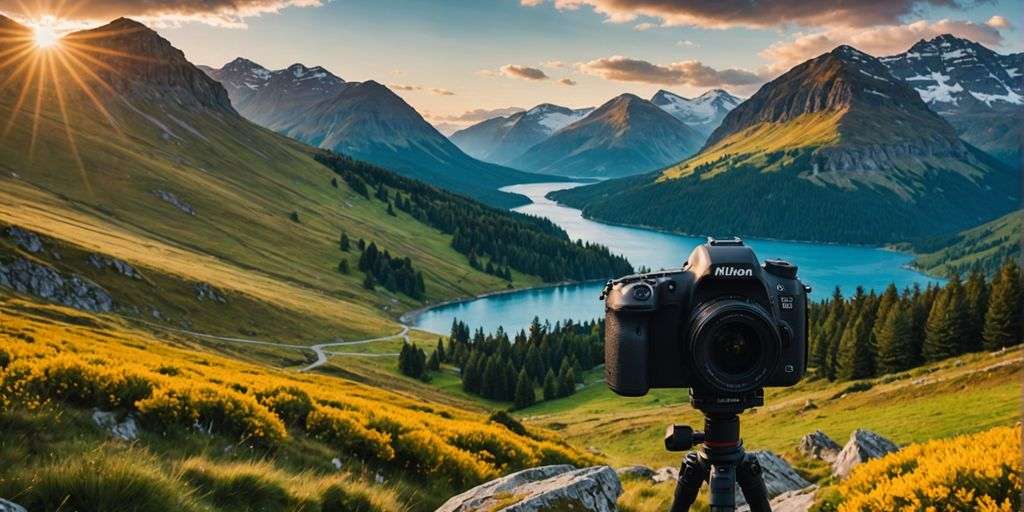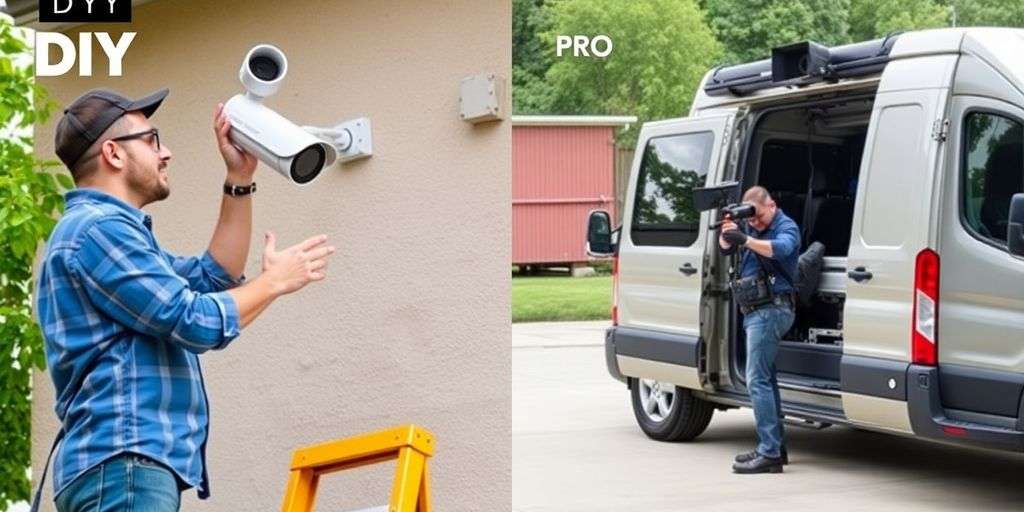Understanding the Basics of HD and 4K Cameras
Defining HD and 4K Resolutions
HD, or High Definition, typically refers to a resolution of 1920 x 1080 pixels. On the other hand, 4K resolution boasts 3840 x 2160 pixels, offering four times the detail of HD. This increased pixel count results in sharper and more detailed images.
Key Differences Between HD and 4K
The primary difference between HD and 4K lies in the number of pixels. More pixels mean better image quality and clarity. Here are some key differences:
- Resolution: HD is 1920 x 1080 pixels, while 4K is 3840 x 2160 pixels.
- Detail: 4K provides significantly more detail, making it ideal for large screens.
- Editing Flexibility: 4K footage allows for more flexibility in post-production, such as cropping and zooming, without losing quality.
Common Uses for HD and 4K Cameras
HD cameras are commonly used for everyday video recording, such as home videos and online content. They are also popular in cctv installation for security purposes. 4K cameras, however, are preferred for professional filmmaking, high-quality YouTube videos, and any project where superior image quality is crucial.
Understanding the basics of HD and 4K cameras helps in making an informed decision when choosing the right camera for your needs.
Advantages of Using 4K Cameras

Superior Image Quality
4K cameras capture video at a resolution of 3840 x 2160 pixels, which is four times the resolution of traditional Full HD cameras. This results in incredibly sharp, detailed footage, providing viewers with a truly immersive visual experience. The heightened pixel density ensures that every detail is crystal clear and vividly rendered.
Enhanced Editing Flexibility
The high resolution of 4K footage offers greater flexibility in post-production editing. Filmmakers and content creators can crop, zoom, and manipulate footage without sacrificing quality. This allows for more creative expression and experimentation. Having extra pixels can be beneficial for colour grading, allowing you to modify your video’s look without compromising its quality.
Future-Proofing Your Content
As 4K technology becomes increasingly prevalent, future-proofing your content by shooting in 4K ensures it remains relevant and compatible with emerging display technologies. Investing in a 4K camera now can save you from having to upgrade in the future.
Shooting in 4K today means your content will still look great on tomorrow’s displays. This forward-thinking approach can save time and money in the long run.
Choosing the Right Camera for Your Needs
Factors to Consider When Buying
When selecting a 4K camera, it’s essential to consider several factors to ensure it meets your needs. Budget is often the first consideration, as 4K cameras can range from affordable to very expensive. Think about how much you’re willing to invest.
Next, consider the purpose and intended use of the camera. Are you a filmmaker aiming to create cinematic masterpieces, or a travel vlogger documenting your adventures? Your specific needs will guide your choice.
Other important factors include:
- Sensor Size: Larger sensors capture more light, resulting in better image quality. Full-frame sensors offer the best performance, while APS-C and Micro Four Thirds sensors provide a balance between price and quality.
- Lens Compatibility: Ensure the camera supports a wide range of lenses to give you creative flexibility.
- Autofocus Capabilities: Fast and accurate autofocus is crucial for capturing sharp images and videos.
- Recording Formats: Check if the camera supports the recording formats you need for your projects.
- Connectivity Options: Features like Wi-Fi, NFC, or Bluetooth can make transferring files and controlling the camera remotely much easier.
- Durability: A sturdy build with weather-sealing can ensure your camera withstands challenging conditions.
Popular 4K Camera Models
There are several popular 4K camera models to consider, each catering to different needs and budgets. Here are a few examples:
- Camcorder 4K Video Camera: Ideal for those who need a straightforward, easy-to-use camera for everyday shooting.
- Feiyu Pocket 2: An ultra-portable option perfect for vloggers and travellers who need a compact yet powerful camera.
- 8K Video Camera with 18X Zoom: A professional-grade camera offering exceptional image quality and zoom capabilities, suitable for filmmakers and serious videographers.
Balancing Budget and Features
Finding the right balance between budget and features is key to choosing the perfect 4K camera. While it’s tempting to go for the most feature-rich model, it’s important to consider what features you’ll actually use. Investing in a high-quality camera that meets your specific needs will provide better value in the long run.
Remember, the best camera is the one that fits your needs and helps you achieve your creative goals. Take the time to research and compare different models to find the perfect match for you.
Maximising the Potential of Your 4K Camera
Optimising Camera Settings
To get the best out of your 4K camera, it’s essential to experiment with different settings and modes. Try shooting in various resolutions, frame rates, and colour profiles to find the look that suits your style. Familiarise yourself with your camera’s features, such as autofocus, ISO levels, and aperture settings, to utilise them optimally.
Essential Accessories
Using the right accessories can significantly enhance your 4K camera’s performance. Consider investing in high-quality lenses for sharpness and clarity, tripods for stability, and external microphones for superior audio. These accessories can help you capture a wide range of subjects and scenes effectively.
Tips for Shooting in 4K
- Pay Attention to Lighting: Lighting is crucial for stunning 4K footage. Experiment with natural light, artificial light, and reflectors to create the desired mood and ambiance.
- Practise Proper Shooting Techniques: Learn about composition, framing, and camera movement. Try different angles and perspectives to add visual interest to your footage.
- Leverage High Resolution for Post-Production: The high resolution of 4K cameras allows for greater flexibility during editing. You can crop images or stabilise videos without losing significant details.
By understanding and utilising these tips, you can unlock the full potential of your 4K camera, resulting in remarkable improvements in your photography and videography projects.
Conclusion
In the end, whether you choose HD or 4K, it all comes down to what you need and prefer. HD cameras still offer great quality and are often more affordable. But if you want the best picture quality with lots of detail, 4K cameras are the way to go. They give you clearer images and more options for editing. As technology keeps getting better, 4K is becoming more common and easier to get. So, think about what you need, what you can afford, and what you want to achieve with your camera. Both HD and 4K have their own benefits, and either choice can help you capture amazing moments.
Frequently Asked Questions
What is a 4K camera?
A 4K camera captures video at a resolution of 3840 x 2160 pixels, which is four times the resolution of Full HD cameras. This means it produces very sharp and detailed videos.
How is 4K different from Full HD?
Full HD cameras record video at 1920 x 1080 pixels, while 4K cameras record at 3840 x 2160 pixels. This higher resolution in 4K cameras results in clearer and more detailed images.
Why should I consider buying a 4K camera?
4K cameras offer superior image quality, better editing flexibility, and future-proofing for your content. They are ideal for large displays and high-quality viewing experiences.





